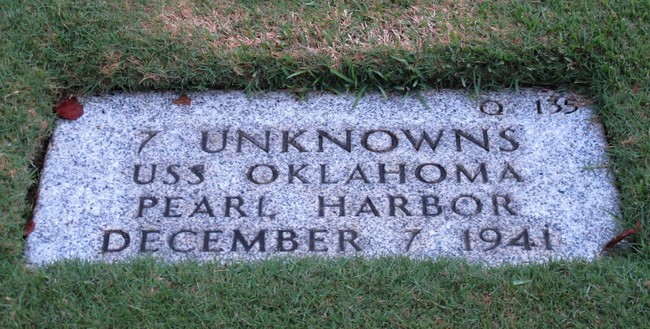
Eighty-three years ago today, on Sunday, December 7th, 1941, the Empire of Japan attacked the United States at Pearl Harbor and other military installations around Oahu. I have a family connection to this event; my father’s uncle was at Hickham Field that day, and later told of standing on the tarmac shooting at Japanese airplanes with a Springfield rifle. He disappeared from the family’s view not long after Pearl Harbor, and came back home in 1946 with a different name and the claim that he couldn’t discuss where he’d been or what he’d been doing, but that’s a story for another day.
Advertisement
A December 7th piece in the Daily Wire recalls the events leading up to the attack, events that should have been a warning:
Several key events foreshadowed the attack in the early morning hours:
- 6:10 a.m. — The USS Condor, a minesweeper, spots a periscope.
- 6:45 a.m. — The USS Ward fires on a Japanese submarine, marking the first shot fired by American forces in World War II.
- 6:53 a.m. — Ward radios Navy HQ, but decoding processes slow down its reception.
- 7:02 a.m. — Radar station on Oahu spots an unidentified aircraft, but reports are ignored because a B-17 from California was expected to arrive.
We must remember those who served at Pearl Harbor on that day, most especially those who fell.
⏳The legacy of the Sailors, Marines & civilians lost on Dec. 7, 1941 is not confined to physical artifacts, memorials or ships. Their sacrifice is the greatest example of our @USNavy values: honor, courage & commitment, which is alive and thriving in each of us.#PearlHarbor83 pic.twitter.com/6BrSs88e8V
— Pearl Harbor Naval Shipyard & IMF (@PHNSYIMF) December 3, 2024
But while we must remember Pearl Harbor, we must also remember the lesson of Pearl Harbor. We were caught unalert and unprepared, even though there were signs that trouble was brewing in the Pacific. Today, there are also signs of trouble in the Pacific.
Advertisement
See Related: Will China Make the Pacific the Next Battlefield?
Is China Preparing a First Strike Against American Forces?
Ironically, Japan is now a parliamentary democracy, although they retain their Emperor. Japan is also America’s best ally in the North Pacific. I’ve written often of my travels to Japan and my fondness for that island nation. Even so, we need to remember what a much more militaristic Empire of Japan did to us in 1941 and note that if it can be done to us once, it can be done to us again.
And, like in 1941, we are unalert and unprepared. Our armed forces are not what they were even a few, short years ago. In 1991, we conducted the largest deployment of troops and equipment since World War 2, and did it in a matter of weeks; we then went through what was, then, the largest army in the Middle East like a dose of salts. We were warfighters then, just coming out of the Cold War and the Reagan defense buildup. Now, the military’s senior ranks were purged by Barack Obama, and the military has become a jobs program for the neurotic. “Diversity, Equity, and Inclusion” (DEI) is the order of the day, not warfighting. If that doesn’t change, we will have set ourselves up again for a surprise attack.
Advertisement
With modern weapons, the Pacific Ocean, while it still makes up nearly a fifth of the planet’s surface, isn’t the protective barrier it was in 1941. China is building up its navy; they were our allies in World War 2, but things have changed a lot since then.
We may very well be subjected to a surprise attack in the Pacific. And again we will not have learned. That’s the lesson of Pearl Harbor. We ignore it at our peril.

